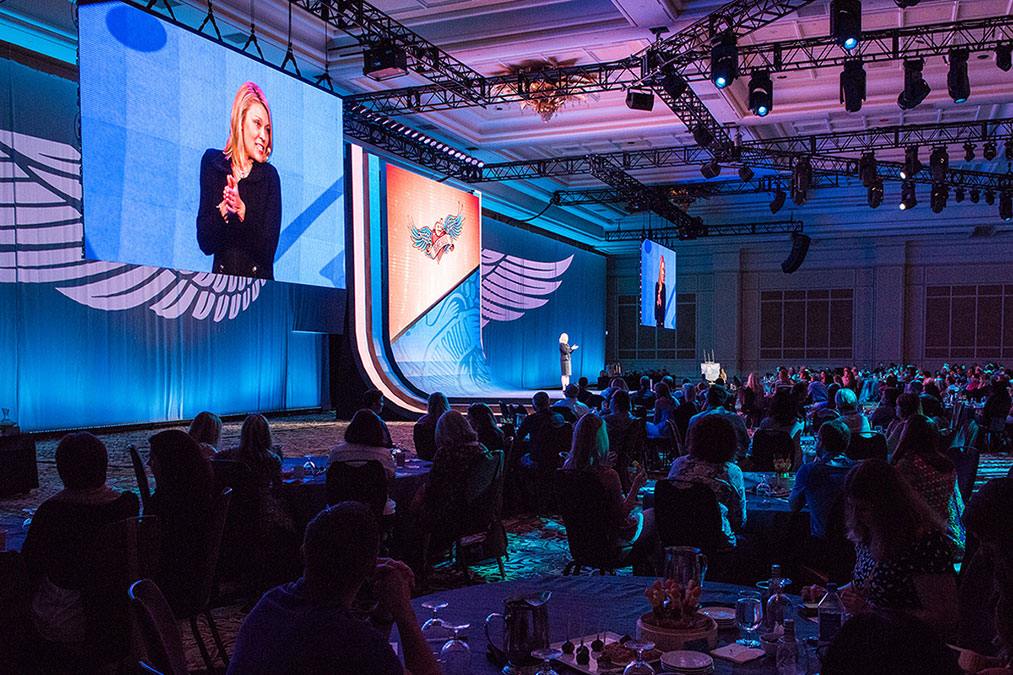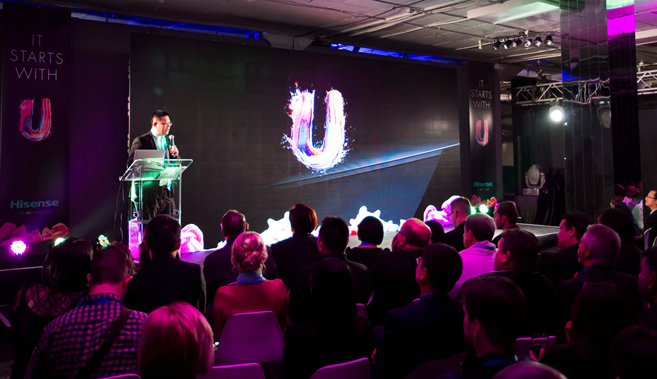
Tips on Creating an Event Budget and How Much You Should Be Spending
The budget is a crucial component of any event. Whether it is a small or large-scale event, your budget is there to make sure you stay within the limits of your financial capacities.
It is only with the efficient use of its budget that a company can optimize its ROI.
How well the budget is planned can be the deciding factor between failure and success. Thus, event budgeting helps in determining the economic feasibility of the events, making key decisions, and evaluating post-event success.
Before Planning Your Event Budget
Event budgeting is tedious and constantly changing thanks to variables that keep getting added or modified. However, it is feasible to make this process more streamlined.
You can do strategic planning by considering all the details of the event. Whether you are an event planner or simply a company manager in charge of planning a company event, here are some important tips that will help you streamline the process of creating an event budget.
Know the different types of costs associated with the event
There are two types of costs involved in an event. They are fixed and variable costs.
Fixed costs are not dependent on the number of attendees. For example, venue rental and environmental costs are fixed costs.
Food and beverage costs are variable costs because it depends on the number of attendees.
Know the event goals and key performance indicators
Every event is arranged with a particular objective. Before you create the budget for an event, it is essential to know the event’s goals. The purpose of an event has a significant impact on its budget.
Whether they be to increase visibility, build a fund or launch a new product, make sure to align your objectives with other members of the company.
Look at similar and past events
Every event is different. But, if you have already arranged a similar event in the past, you can get inspiration or guidance from that plan and avoid wasting time on event planning.
It will be easier to edit an existing budget than to start budget planning from scratch. But, while you take help from an existing budget, you must remember that costs will change with time.
Do research on individual variables of the event
After you have studied similar and past events, you have to do research on different items and their costs. This may include venue, staff, food and beverage, transportation, security, etc.
You also have to research on how you plan to advertise the event. Event marketing like social media marketing, paid content marketing of the events, etc.
Gauge the income potential
When you are planning the event budget, you must be clear about the income you want to make from the event (if that is a part of your event objectives). The income of your event can come from tickets, sponsorships, goods, and services sold during the event, and others.
This will figure as your source of income within your budget. This will help you and other stakeholders to get an idea of the ROI of the event.
When you have a clear idea about the expenses to be incurred for the event, you can decide on the ticket prices and sponsorship packages so that you know how to adhere to the budget.
Looking |
Discover the most relevant agencies for your project based on your own specific requirements.
Find an agency!What to Include in an Event Budget?
The event budget is the backbone of planning management. Without a proper event budget, it is impossible to determine whether you will have ROI from the event or if there will be enough money to run the event.
Well-organized event budgets are essential to make the right decisions and help organizations earn or save funds.
An event budget template can be helpful in planning the budget of an event in a streamlined way. In your event budget, you must include the following expenses and customize them according to the event you are organizing.
The typical cost breakup of event expenses for most events will be as such:
- Venue and equipment- 20%
- Transportation – 3%
- Catering – 20%
- Entertainment- 15%
- Decor- 10%
- Marketing- 7%
- Contingency- 25%
Let us now examine these various event expenses in detail, to help you forecast future budgets.
Staff compensation
The common staff members needed for an event are-
- Onsite staff members for check-in desks, greeting guests, etc.
- Staff members for setup and takedown
- Food service staff member
Recruiting staff members for an event, a big one, is overwhelming for an event management company. On-demand staff hiring companies have qualified professionals, who are trained for various event management programs.
Venue
For any event, venue cost is the largest expense in the event budget. For an event, small or big, choosing a spacious venue is crucial to give a better experience to the guests. The common venue costs of an event are-
- Security deposit
- Room rent
- Insurance coverage
Proper equipment is also needed to conduct the event seamlessly. Projectors, computers, microphones, and other audiovisual aids may be needed at the venue to conduct the event.
The common equipment or technology costs include:
- Speakers or microphones
- Event apps
- Live-streaming of events
- Generators
Food and beverage
Food and beverage is not an essential cost for an event, but conducting an event with food and beverage will be a pleasant experience for the attendees.
Attendees will return to future events if their current experience is pleasant. If you opt out of providing meals to the attendees, it may lower ticket sales.
The expense of food and beverage depends on the total number of attendees.
Here is the price range for food and beverages.
- The cost of food and beverage (Breakfast) for corporate events starts from $11 per person
- Buffet meals will cost $18-$30 per person
- Formal dinner starts from $30 per person
Depending on the meal time (breakfast, lunch, dinner etc.), prices may also vary.
Marketing
Using social media platforms is a cost-effective way to market your event. You can also put up posters or hire an email marketing agency to share your event details using email.
You can give handouts or brochures to your attendees so that they get a clear idea about the event. Hiring a professional photographer for your event is another way to promote it.
Attendees and speakers
If you invite reputable keynote speakers for your event, it will increase the event budget. You will also have to incur costs for the accommodation of your attendees and speakers.
Having a reputable speaker at the event will attract attendees and they will have an enhanced experience but it will increase your budget. You will also have to incur costs for transportation, gifts, and payment of the guest speakers.
Miscellaneous expenses
After your event budget is set, you must keep 20% of the total estimated income for miscellaneous expenses or unexpected costs. This will help you remain prepared for the emergency situation during the event. You may need to incur miscellaneous expenses for extra supplies or other fees.
How to Cut Down on Event Costs?
Event costs are rising. It may be difficult to conduct an event within a set budget. Here are the tips for cutting the event costs and accomplishing the event within budget.
Be flexible
It is possible to reduce expenses if you are flexible about the venue, time, and dates of your event. You need not look for a particular hotel for your event because it used to be held at that place. If you are flexible about dates, you can save on costs.
You can choose a venue that is relatively cheaper than sticking to the particular one which can increase your cost. Your conference can start in the afternoon session so that you can save on breakfast and lunch costs.
Consider shared rental space
Do not stick to renting exclusive event venues. If possible, go for shared rental spaces which will cost much less. This way you can reduce the overall expense.
Be proactive
Do not wait for your events’ vendor till the last minute. As soon as your venue and date are fixed, you must search for suppliers. It will be easier for you and your vendors to plan better and deliver things for the event if planning is done well in advance.
Problems can be resolved by communicating which may not be possible if you look for vendors just a few days before the event.
Invest wisely
When you are investing in your event, you must do so wisely. You can purchase your staging items and lighting elements in such a way that they can use uniquely to design different events.
Reusing components for various events will save money and also be an environment-friendly initiative. Investing now and using the components in the next event will save you money.
Save on Wi-Fi and electricity
Electricity is expensive and can increase the overall budget of the event. You can discuss with your audio-visual supplier, event organizers, and hotel authorities to find out ways to save on Wi-Fi and power supplies. You can compare different service providers and opt for the cheapest one.
Consider hybrid events
You can save costs by arranging hybrid events. In such an event, you can have the event in online and offline modes. You will save on venue costs, food and beverage, and accommodation charges if you conduct hybrid events.
Working With an Event Agency
Organizing an event has many responsibilities associated with it. Apart from the event budget, there are many other aspects to be considered while planning an event.
Planning an event on your own can be time-consuming and stressful. Hiring an event management agency can take the burden off your shoulders.
Professional event planners have a comprehensive view and a better understanding of the system. You can be assured that the event will get organized the way you want it.
The advantages of hiring an event management agency are listed here.
Saves money and time
By outsourcing your upcoming event to an event management company, you can save time and reduce expenses. An event management company is well-connected to the network of resources such as hotels, event venues, and suppliers and can negotiate on your behalf.
They will help you get more for the money you will spend on the event. You will have to accept the date and venue of the event and the rest is taken care of well by an event management company.
Get creative ideas
When you hire an event agency to organize your event, they will provide you with a list of creative ideas. They have tested solutions and will give you customized ideas based on your needs.
The best thing is that you will hear ideas within the set budget. With their experience, event management professionals know how to make your event successful and help your business grow.
Expertise in budget management
An event can be successful when it is strategically planned considering every detail. A successful event adheres to the event timeline and budget. However good you may be at planning events, there are chances that you will miss out on certain points.
But, when you have an event planner working for you, they plan in detail considering every logistical, sale, and other processes.
The event planner is continuously updated and is ensured that everything remains within the budget. While your event manager is ensuring every step is accomplished with precision, you will have peace of mind as nothing goes beyond the set budget.
Measuring the success
The organization of an event is much more than simply planning an event. There is a lot of work to be done while the event is going on and after It is done.
There are different metrics to measure the success of an event. The event agency uses the right methodology to assess the event’s success.
You can measure the degree of attendee satisfaction using a feedback mechanism. A reputable event management company will help you measure the success of the event so that you can plan accordingly for the next event.
Better risk management
Even if an event is well-planned, uncertainties are there such as a medical emergency, power failure, or fire. By outsourcing your event management, you are sure that you have experienced staff onsite who would know how to handle emergency situations.
An event planner will ensure a safety management plan is created and submitted. In this plan, the event management company identifies all types of risks and mentions strategies to take care of these risks.
Make the right choice with confidence
Discover the most relevant event agencies for your project based on your own specific requirements.
Find an agency!Conclusion
An event budget helps the event planners work within set parameters. They know that they have to accomplish the plan within the set budget. The better the budget is planned, the more seamless will be the event execution.
Event budgets are equally critical for the hosts and the event planners. There are event budgeting tools that can be used to make event budgets. Regardless of the type of event you are planning, working with a reputable event management agency is always preferable.
Moreover, you do not have to worry about budget and any hidden costs. It is equally important to review and track the event budget so that you can understand what went wrong and the improvements you can incorporate in the next event.










